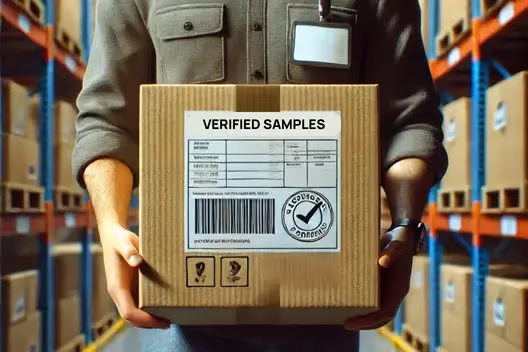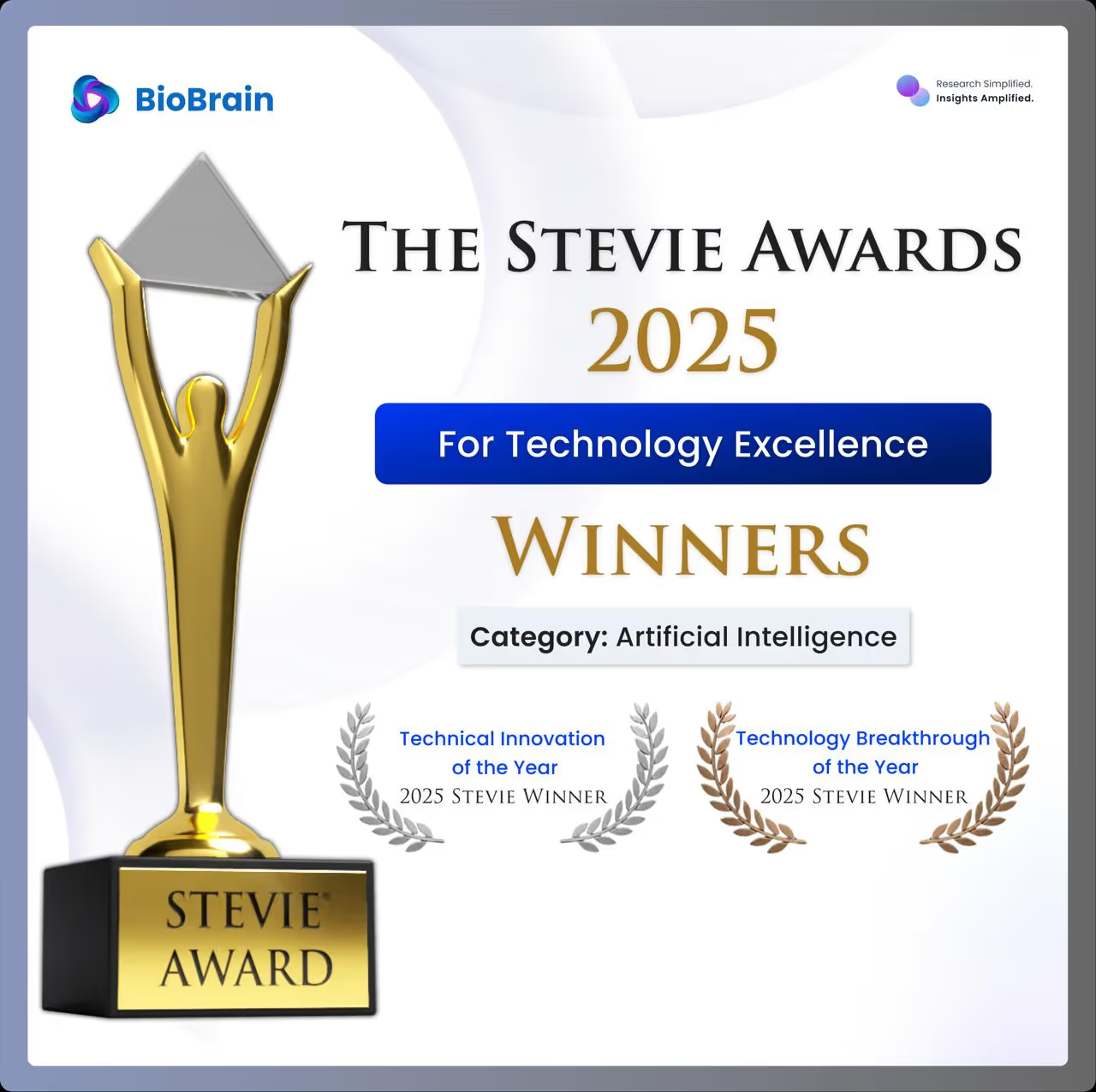In the fast-paced world of market research, data accuracy is paramount. Every piece of information, from survey responses to sample demographics, plays a crucial role in shaping your research findings. This is where supplier reconciliation comes into play – a vital process that ensures all data received from external vendors aligns with your initial agreements and expectations.

Why Reconcile with Suppliers?
In the context of market research, the suppliers in question for supplier reconciliation are the external vendors who provide various services and data for your research projects.
These can include:
Recruiting Agencies
They identify and source participants for surveys, focus groups, and other research activities. These participants can be a general population sample or a specific demographic group depending on your research needs.
Sample Providers
They specialize in providing access to specific audiences or demographics for research. For example, you might need a sample of doctors, or a group of millennials interested in fitness. Sample providers have established relationships with these specific groups and can efficiently recruit them for your project.
Data Collection Companies
These companies handle the data gathering process for your research. They might administer online surveys, conduct phone interviews, or manage online panels where participants complete surveys or tasks.
Data Processing Companies
In some cases, you might outsource the data cleaning, coding, and analysis to a separate company. This can be helpful for complex research projects with large datasets.
While these suppliers offer valuable expertise, discrepancies can arise:
- Billing discrepancies: The supplier's invoice might not reflect the agreed-upon rates or services rendered.
- Data quality issues: Incomplete data, inconsistencies, or inaccurate information can compromise the research findings.
- Contractual disagreements: Misinterpretations of project scope or deliverables can lead to unintended services or unexpected costs.

The Supplier Reconciliation Process
Reconciling with suppliers involves a systematic approach to identify and address any inconsistencies:
1. Data Gathering
- Review Contracts and Agreements: Gather all documentation outlining the scope of work, deliverables, pricing, and timelines agreed upon with each supplier.
- Collect Supplier Invoices: Obtain detailed invoices from each supplier, specifying the services provided and associated costs.
- Project Data Acquisition: Access the data received from the supplier, including survey responses, participant demographics, or other project deliverables.
What challenges could arise?
- Time-consuming: Manually collecting data from contracts, invoices, and supplier deliverables can be very time-consuming, especially for complex research projects with multiple suppliers.
- Manual Data Entry Errors: There's a high risk of errors during manual data entry, leading to inaccuracies and inconsistencies in the reconciliation process.
- Version Control Issues: Difficulty tracking and managing different versions of contracts or invoices can create confusion and delays.
2. Matching and Verification
- Compare Invoices with Agreements: Verify that the services and costs billed by the supplier match the agreed-upon terms in the contract.
- Data Quality Checks: Run data quality checks on the received information to identify missing values, inconsistencies, or outliers that might require clarification with the supplier.
- Cross-referencing Data: If applicable, cross-reference data from different suppliers to identify potential discrepancies or duplicates.
What challenges could arise?
- Tedious Data Comparison: Manually comparing invoices with contracts and data sets line by line is a tedious and error-prone process.
- Identifying Discrepancies: It can be challenging to identify subtle inconsistencies or missing information within large datasets.
- Standardization Issues: Varying data formats or inconsistencies in how information is presented by different suppliers can complicate reconciliation.
3. Discrepancy Resolution
- Communication and Negotiation: If any discrepancies are found, initiate communication with the supplier to clarify and resolve the issue. Negotiate adjustments to invoices or data corrections as needed.
- Documentation: Maintain clear documentation of all communication and agreements reached with the supplier regarding any discrepancies.
What challenges could arise?
- Communication Delays: Resolving discrepancies can involve lengthy email exchanges or phone calls with suppliers, leading to delays in the reconciliation process.
- Documentation Challenges: Maintaining clear and organized documentation of identified discrepancies and communication with suppliers can be time-consuming and difficult.
- Limited Collaboration Tools: Manual workflows lack efficient tools for collaborative communication and tracking of resolution progress.
4. Reporting and Review
- Reconciliation Report: Prepare a final report summarizing the reconciliation process, highlighting any identified and resolved discrepancies.
- Review and Approval: Share the reconciliation report with internal stakeholders for review and approval before finalizing payments to suppliers.
What challenges could arise?
- Time-Consuming Report Generation: Manually compiling reconciliation reports that summarize findings and discrepancies can be a lengthy task.
- Lack of Transparency: Manual reports may lack clear visualizations or detailed information, making it challenging for stakeholders to understand the reconciliation process.
- Approval Bottlenecks: The review and approval process for reconciliation reports can be slowed down by manual routing and communication.
Why Manual Reconciliation Hurts Your Bottom Line
Delayed Research Progress
The time spent on manual reconciliation tasks can significantly impact project timelines and delay delivery of research insights, potentially leading to lost revenue opportunities or missed deadlines for client deliverables.
Reduced Researcher Productivity
Valuable researcher time is diverted from core research activities like analysis and interpretation, hindering research team efficiency and potentially impacting project budgets.
Increased Risk of Errors
Manual processes are more prone to human errors, potentially leading to inaccurate data and unreliable findings. This can result in wasted resources on corrective actions and potentially damage to your research reputation, impacting future client acquisition and project fees.
Inefficient Resource Allocation
Limited resources are consumed by manual tasks, hindering overall research project efficiency. This can lead to increased costs as additional resources are required to manage the backlog or reduced capacity to take on new projects, ultimately impacting your bottom line.
How ResTech Platforms Automate Sample Management
Enter the world of ResTech, a category of technology platforms specifically designed to revolutionize research processes. With a focus on sample management, ResTech platforms like BioBrain offer a helping hand, automating tedious tasks and freeing you to focus on the real strategy and decision-making.
Here's how:
1. Automated Workflows: Say Goodbye to Manual Mayhem
Forget the days of endless spreadsheets and sticky notes. ResTech platforms automate the grunt work of sample management, freeing you to focus on the bigger picture.
- Streamlined Sample Tracking: No more frantic searches for lost samples! ResTech platforms provide real-time visibility into your sample inventory. Track the status of each sample throughout its lifecycle, from collection to analysis.
2. Improved Data Accuracy: Eliminating the Human Error Factor
Manual data entry is a recipe for errors, jeopardizing the integrity of your research. ResTech platforms inject accuracy into your sample management by:
- Minimizing Human Error: Automation eliminates the possibility of typos and transcription mistakes during data entry.
- Enhanced Data Consistency: ResTech platforms enforce standardized data formats and procedures, ensuring consistency across your entire sample collection.
- Audit Trails & Traceability: Maintain a complete audit trail of all sample actions within the platform. This allows you to track which supplier handled each sample, when, and under what conditions, enabling comprehensive traceability for robust research practices.
3. Enhanced Scalability: Conquer Complexity with Ease
As your research projects grow in complexity, manual sample management becomes a nightmarish bottleneck. ResTech platforms are built to scale:
- Managing Large Sample Volumes: Handle massive sample collections efficiently. ResTech platforms can manage thousands of samples with diverse data points, effortlessly organizing and tracking even the most intricate research projects.
- Streamlining Complex Workflows: ResTech platforms can handle multi-stage workflows with ease. Automate sample preparation steps, and trigger alerts when specific criteria are met.
4. Streamlined Supplier Integration: Bridging the Gap Between You and Your Suppliers
Supplier reconciliation, the bane of many researchers' existence, can be significantly streamlined with ResTech platforms:
- Seamless Data Exchange: Integrate your ResTech platform with your suppliers' systems. This enables automatic data exchange, minimizing the need for manual reconciliation and reducing the risk of discrepancies.
- Enhanced Communication: ResTech platforms can facilitate communication with suppliers, allowing you to exchange information electronically and track the status of incoming samples.
By embracing Insights 4.0, you can transform your sample management from a tedious chore into a well-oiled engine driving your research forward.
Read more about Survey Programming here.
The world of research is a constant pursuit of breakthroughs. But the burden of manual sample management can steal precious time and resources from the pursuit of scientific discovery. ResTech platforms like BioBrain offer a powerful solution, unlocking a new era of efficiency and accuracy in sample management.
They automates supplier reconciliation through:
- Real-time Quality Checks: Proprietary quality algorithms analyze every survey response as it's submitted. These algorithms flag fraudulent entries based on factors like:
- Time taken to complete the survey
- Attention span
- Speeding through questions
- Answering in a straight line pattern (indicating random selections)
- Automatic Quota & Supplier Adjustments: Based on the quality checks, automatic readjustment of quotas and supplier numbers takes place. This ensures that:
- Only high-quality responses that pass quality control are counted.
- BioBrain prioritizes suppliers delivering better quality data.
These processes eliminates the need for manual intervention and ensures a seamless project flow by automatically selecting qualified responses and adjusting quotas for optimal results.













